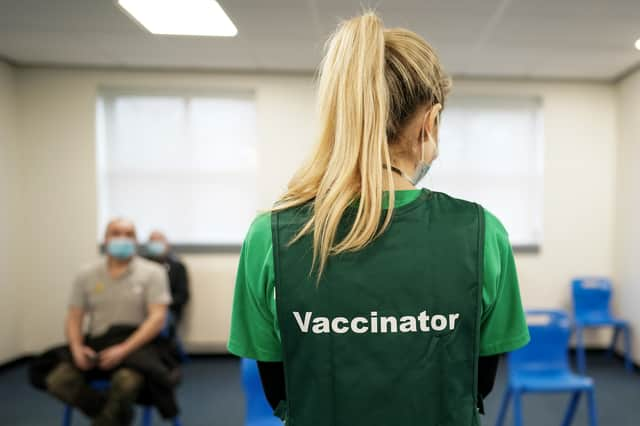Cancer patients are not as protected as others against Covid after first vaccine dose


Data from the world’s first reported trial has shown that more than half of cancer patients are left with little protection against the Covid-19 virus after receiving a single dose of the vaccine.
The study examined the level of immune protection after the Pfizer BioNTech vaccine was given to cancer patients, and it found that anti-SARS-CoV-2 antibody responses at week three, following the first dose, were only 39 per cent and 13 per cent in the solid and haematological cancers, compared to 97 per cent in those without cancer.
Advertisement
Hide AdAdvertisement
Hide AdThe preprint study also reports that following the second dose of the vaccine, given three weeks after the first dose, the immune response improved significantly for solid cancer patients, with 95 per cent of them showing detectable antibodies to the virus within just two weeks.
However, those who did not get the vaccine boost at three weeks did not see any real improvement, with only 43 per cent of solid cancer patients, and eight per cent of blood cancer patients, developing antibodies to the Pfizer vaccine at five weeks - compared to the 100 per cent of healthy controls.
‘12 week vaccine gap could leave cancer patients vulnerable’
The study says: “The evidence of vaccine responses in cancer patients shows that a gap of 12 weeks between doses of the Pfizer/BioNTech vaccine could leave many cancer patients vulnerable to serious Covid-19.”
The study was conducted by the King's College London and Francis Crick Institute research team, and as a result of the findings, the study’s senior authors believe that the Government should re-evaluate its policy for the dosing interval for all cancer patients.
Advertisement
Hide AdAdvertisement
Hide AdCurrently, the UK government placed more priority on giving as many people as possible one dose, rather than holding back vaccines to administer two doses in the recommended three week time frame.
The gap between the first and second jabs were therefore extended from three to 12 weeks.